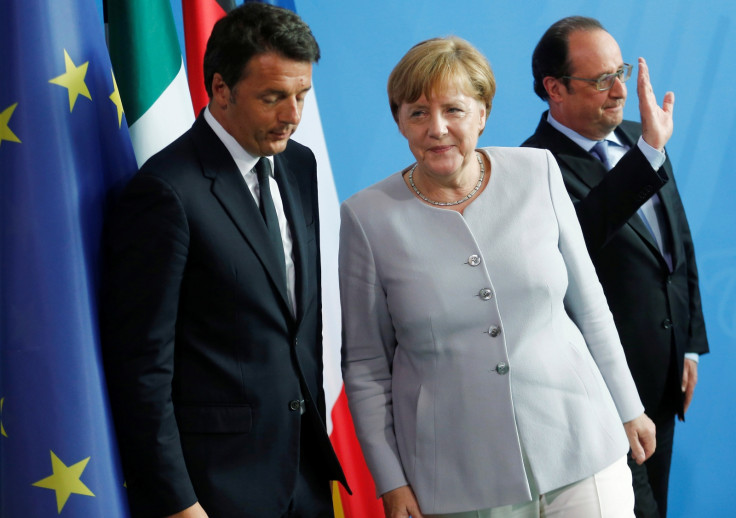Jóhanna Sigurðardóttir: Female leaders Angela Merkel and Nicola Sturgeon can clean up the Brexit mess
Women create a more just society when given the chance, says Iceland's first female prime minister.

Brexit is neither sensible for Britain nor good for Europe, in my opinion. In fact, it's quite the opposite, as I think it would have a negative effect on the UK, economically and socially, and cause uncertainty and instability.
Brexit also stirs up extreme nationalism and could, therefore, make it more difficult for Europe to deal with terrorism and ensure peace.
Sadly, it also seems many pro-Brexit voters were misinformed about the consequences of leaving the EU. And some of the slogans used by the pro-Leave campaigners might turn out to be empty promises.
In the aftermath, many voters appear to fear if Brexit becomes a reality, and favour of another referendum. When accusations are thrown at these people, they should remember that Ukip's pro-Leave campaigner Nigel Farage said before the referendum that if the outcome was close, it would be fair to repeat the vote to get a more decisive result.
Today, nobody seems to want to hold the very hot potato of invoking Article 50 of the Lisbon Treaty, which is needed to start the negotiations about Britain leaving the EU. Not even UK Prime Minister David Cameron – who, before the referendum, implied that he would.
Cameron took too big a risk by promising a EU referendum if the Conservative Party won the 2015 Parliamentary elections. He doesn't seem to have foreseen this outcome.
European leaders now have to deal with the complex situation that has arisen within the EU since the British nation cast its vote last week.
It is a relief that the German Chancellor, Angela Merkel, will play an important role in the negotiations with Britain. Merkel is an extremely balanced and capable politician who, I am certain, will do her best to minimise the damage to the EU and limit the uncertainty in the wake of Brexit.
The First Minister of Scotland, Nicola Sturgeon, has also shown that she will ensure the opinion of the Scottish people is not disregarded. With Sturgeon at the helm, Scotland will not obediently follow England out of the EU.
I wholeheartedly agree with the first minister about the need for another independence referendum in Scotland if Brexit becomes a reality. The vast majority of people in Scotland want to belong to the EU, and I am certain that if Brexit had been in the cards before the Scottish referendum in 2014, its result would have been different.
The two leaders I have mentioned, Angela Merkel and Nicola Sturgeon, are very important role models for women and, hopefully, encourage many women to aim for high office. We need more gender equality at the top – more intelligent, dynamic and sensible women in positions of power in Europe and, of course, globally.
Both Merkel and Sturgeon have shown that women can be responsible, respected leaders, and often less inclined to risk-taking than many male politicians.
When I became prime minister in Iceland in 2009, in the wake of the economic crisis, I appointed an equal number of female and male government ministers. Never before had there been gender equality around the cabinet table, and I am certain that made a difference in getting Iceland's economy back on an even keel.
When I have spoken on the importance of women taking on a greater role in the running of the world, I have sometimes quoted a poem by an Icelandic poet, Ingibjörg Haraldsdóttir, translated by Salka Guðmundsdóttir. It is simply titled Woman:
When all has been said
when the problems of the world
have been dissected discussed and settled
when eyes have met
and hands been shaken
in the gravity of the moment
– a woman always arrives
to clear the table
sweep the floor and open the windows
to let out the cigar smoke
It never fails.
In my experience, women work hard to create a more just and equal society – when they are given the chance. If that was more often the case, and women were not simply called in to do the cleaning up when the men have made a mess of things, I think the world would become a better place.
Jóhanna Sigurðardóttir was Iceland's first female prime minister. She governed the country from 2009 to 2013.
© Copyright IBTimes 2025. All rights reserved.






















